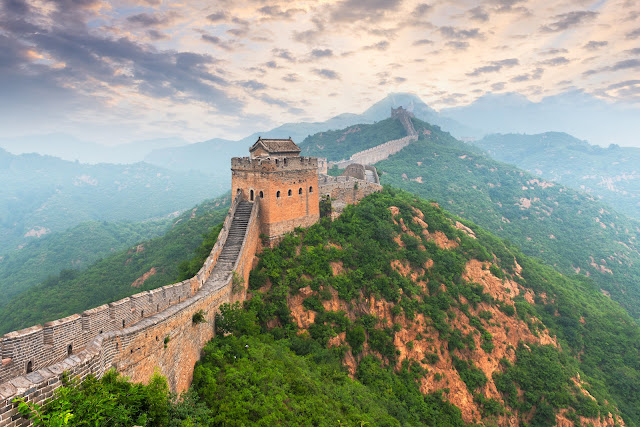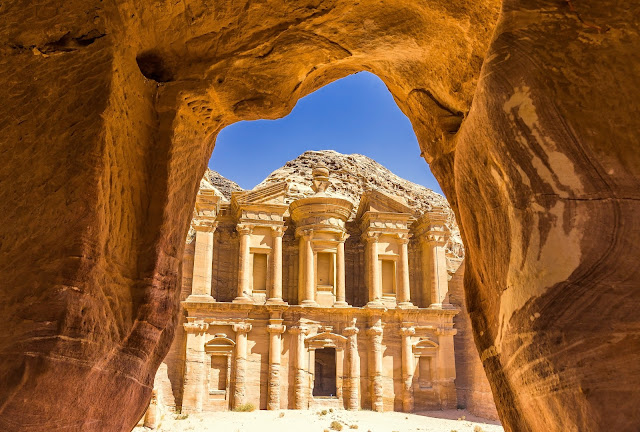Top Historical Sites in Asia
Asia, the world's largest and most diverse continent, boasts
a captivating history that spans millennia. Its landscapes are adorned with
architectural marvels, sacred temples, ancient ruins, and remnants of past civilizations.
In this article, we embark on a virtual tour of historical sites in Asia,
uncovering their fascinating stories, cultural significance, and enduring
legacy.
Asia's historical sites are a testament to the ingenuity and
creativity of civilizations that have risen and fallen over centuries. These
sites offer a glimpse into the past, telling stories of conquest, devotion,
love, and resilience. Join us on this journey through time as we explore the
most iconic historical sites in Asia.
Historical Sites Asia: A Journey Through Time
The Great Wall of China: A Marvel of Ancient Engineering
Our journey begins with the Great Wall of China, a colossal defensive fortification that stretches over 13,000 miles. Built over several dynasties, it served as a barrier against invasions and stands as a symbol of China's rich history.
Angkor Wat: Cambodia's Crown Jewel
Angkor Wat, nestled in the heart of Cambodia, is a breathtaking temple complex that represents the pinnacle of Khmer architecture. This UNESCO World Heritage Site is dedicated to the Hindu god Vishnu and is a testament to Cambodia's glorious past.
The Taj Mahal: India's Monument of Love
In the city of Agra, India, the Taj Mahal stands as a symbol of eternal love. Built by Emperor Shah Jahan in memory of his beloved wife Mumtaz Mahal, this ivory-white marble mausoleum is a masterpiece of Mughal architecture.
Kyoto's Kinkaku-ji: The Golden Pavilion
Kinkaku-ji, or the Golden Pavilion, is a Zen Buddhist temple in Kyoto, Japan. Its shimmering golden exterior and serene gardens make it a captivating destination for travelers seeking tranquility and spiritual enlightenment.
The Terracotta Army: Guardians of Qin Shi Huang
Located in the Shaanxi province of China, the Terracotta Army is a vast collection of life-sized sculptures created to accompany Emperor Qin Shi Huang in the afterlife. This archaeological wonder provides a glimpse into China's imperial history.
Petra: The Rose City of Jordan
Carved into rose-red cliffs, Petra in Jordan is a UNESCO-listed archaeological site. Known as the Rose City due to the color of its stone, Petra's intricate rock-cut architecture is a marvel to behold.
The Great Pyramids of Giza: Egypt's Mystical Wonders
The Great Pyramids of Giza need no introduction. These colossal structures, built as tombs for pharaohs, continue to mystify with their architectural precision and enigmatic history.
Machu Picchu: Lost City in the Andes
Nestled high in the Andes Mountains of Peru, Machu Picchu is an Incan citadel shrouded in mystery. Its stunning mountaintop location and intricate stone construction make it one of the world's most iconic archaeological sites.
The Acropolis of Athens: Cradle of Democracy
The Acropolis of Athens, perched atop a rocky hill, is a symbol of ancient Greece's cultural and democratic achievements. It is home to iconic structures like the Parthenon, dedicated to the goddess Athena.
Borobudur: Indonesia's Buddhist Sanctuary

In the lush landscapes of Java, Indonesia, stands Borobudur, the world's largest Buddhist temple. Its intricate stone reliefs and stupas make it a sacred pilgrimage site for Buddhists.
The Historic Silk Road: A Transcontinental Odyssey
The Silk Road, an ancient network of trade routes, connected
Asia with Europe and Africa. This historical marvel facilitated the exchange of
goods, culture, and ideas across continents.
Bagan: Myanmar's Ancient Temple Plain
Bagan, Myanmar, is an archaeological wonderland with
thousands of ancient temples and pagodas dotting its plains. It's a testament
to the rich religious history of the region.The Forbidden City: Beijing's Imperial Palace
The Forbidden City in Beijing, China, served as the imperial palace for nearly 500 years. Its grand halls, courtyards, and architecture reflect the power and opulence of Chinese emperors.
The Hiroshima Peace Memorial: A Symbol of Hope
The Hiroshima Peace Memorial, also known as the Atomic Bomb
Dome, stands as a stark reminder of the devastating events of World War II. It
now serves as a symbol of peace and a call for nuclear disarmament.Finale
Asia's historical sites are not mere remnants of the past;
they are windows into the rich tapestry of human civilization. Whether you're
walking along the Great Wall of China, marvelling at the Splendor of Angkor
Wat, or gazing at the Taj Mahal's beauty, you'll find yourself transported to
different eras. These sites are a testament to the creativity, ingenuity, and
enduring spirit of the people who built them.
As you plan your next journey, consider embarking on a
historical adventure through Asia. Each site holds stories of empires, love,
faith, and human achievement, waiting for you to explore and discover.

.jpg)









No comments:
Post a Comment